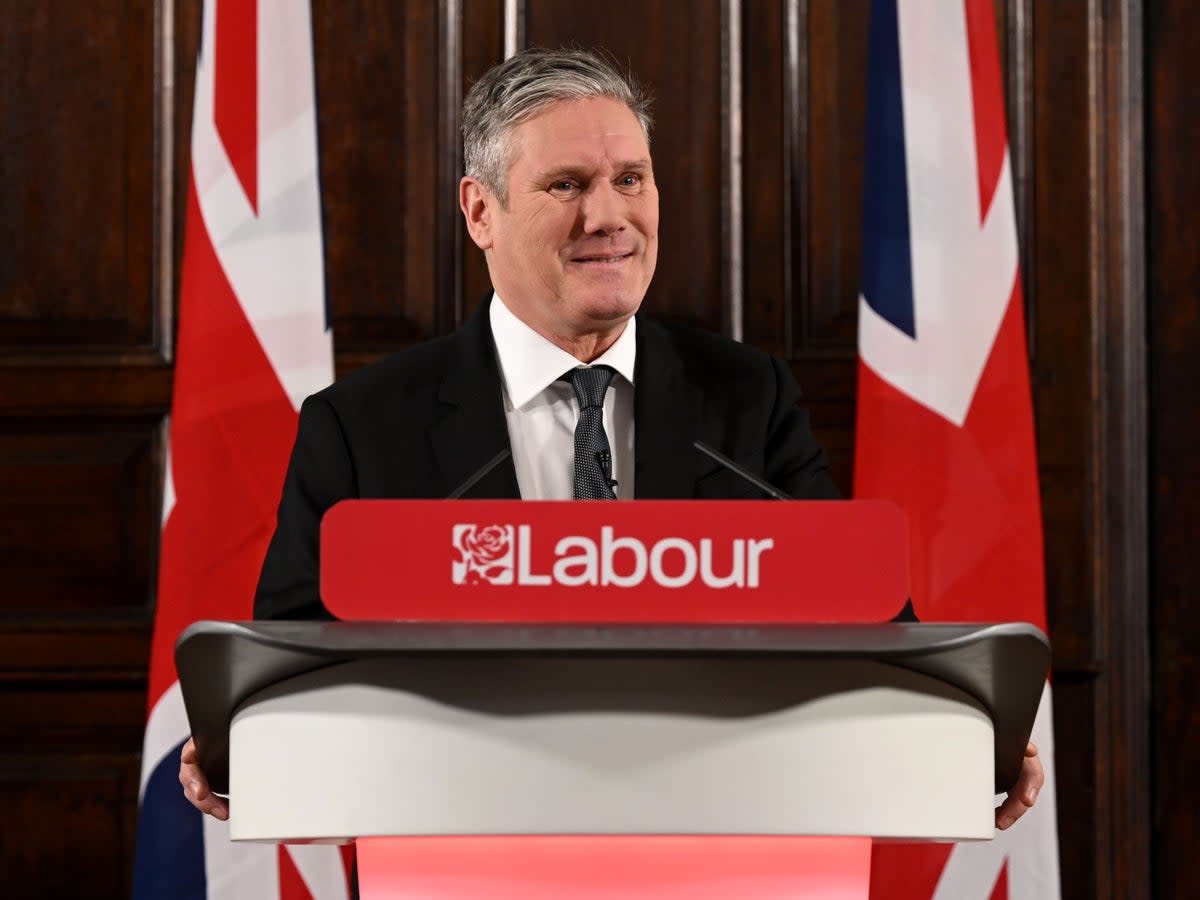Voices: Keir Starmer, political chameleon, is beginning to look more and more like a winner

- Oops!Something went wrong.Please try again later.
- Oops!Something went wrong.Please try again later.
- Oops!Something went wrong.Please try again later.
Keir Starmer is looking for a chief of staff, possibly a former civil servant who understands how government works, who would help to prepare in case Labour wins the next election – without taking anything for granted, of course.
One cabinet minister from the last Labour government told me that Starmer didn’t need a civil servant: “He is a civil servant; he needs someone who understands politics.” But I wonder about that. Could it be that the Labour leader’s bureaucratic, technocratic, managerial image is a front? Could it be that he is actually brilliant at politics?
I wonder, because his final break with Jeremy Corbyn on Wednesday was like a magic trick. Starmer implied that “there was no space” in the Labour Party for anyone who shared his predecessor’s worldview.
He was speaking specifically about anyone who refused to accept the findings of the Equalities and Human Rights Commission about the toleration of antisemitism under Corbyn’s leadership, but his speech went beyond that, saying Labour “will never again be a party captured by narrow interests”.
If that is Starmer’s genuine view, he concealed it so successfully while he was a member of Corbyn’s shadow cabinet – and, crucially, during the leadership election – that neither side could be sure where he really stood.
Corbyn supporters, even though they are precisely the kind of people who are always on the lookout for someone new to betray them, didn’t trust him, but also didn’t think he was a Blairite. Blairites tried to locate him somewhere on the spectrum between Ed Miliband and Corbyn, but supported him anyway because he wasn’t actually a Corbynite.
Yet now it turns out that his place on the spectrum is somewhere between Gordon Brown and Tony Blair. Cloudiness has given way to aggressive definition. If you don’t like it, the door is over there.
“The Labour Party has changed,” Starmer declared. “Not because it was convenient to do so, not by fiddling around the edges, not just until the next person to lead the party comes along.” This last is an extraordinary claim to make; it changed because the next person to lead the party came along and led it in a direction that was not advertised in advance. Yet Starmer claims that the change is “permanent, fundamental and irrevocable”. He is a ruthless chameleon.
It is not unusual for a politician to change their views. What is unusual about Starmer is that he does it without explaining what he is doing and why. Why did he try to make Corbyn prime minister, he was asked on Wednesday. His reply was that he made it clear in public and in private that he disagreed with Corbyn about antisemitism. Next question.
The result is that his ruthlessness is disguised. The 10 pledges on which he stood for the leadership? Never heard of them. The SNP has a mandate for a second independence referendum? What fool said that? Richard Leonard, the Corbyn-supporting leader of the Scottish Labour Party? Dumped in an operation orchestrated by the leader’s office in London. Trans women are women? Terms and conditions apply.
Doubters can find video clips of Starmer then saying the opposite of Starmer now that are almost Trump-like in their flat contradiction. And yet it doesn’t seem to matter.
He has supplied a series of examples to support the proposition that U-turns are harmless to politicians, provided that they change from a position that is unpopular to one that is popular.
Journalists and the politically hyper-engaged are excited by inconsistency; the voters, on the other hand, seem to think that leaders who change their minds to agree with them perform a democratic service.
One of David Cameron’s great strengths was that he didn’t believe in very much. He thought he cared about the deficit above all; except that, when his talk of slashing and burning the public services scared the voters in the run-up to the 2010 election, he went on about how much he loved the NHS instead. When it turned out that there was something he believed in that the British electorate didn’t – namely staying in the EU – it did it for him.
Boris Johnson appeared to believe in even less, which helped him take up a position on the other side of the EU argument, which won him the premiership and an election. Although his ideological flexibility descended into confusion rather than clarity about the people’s priorities after Brexit.
Starmer’s chameleon-like abilities are the more effective for being stealthier. The politician he most resembles might be Harold Wilson, and yet he has less of Wilson’s reputation for slipperiness.
Obviously, the committed Corbynites think he double-crossed them, but the more general impression of Starmer in the Labour Party and among the general public is of steadiness and competence, bordering on dullness.
Perhaps it is by appearing not to be political that Starmer has outplayed the games-players and ended up ahead in the opinion polls, and is increasingly looked upon as the coming power.

